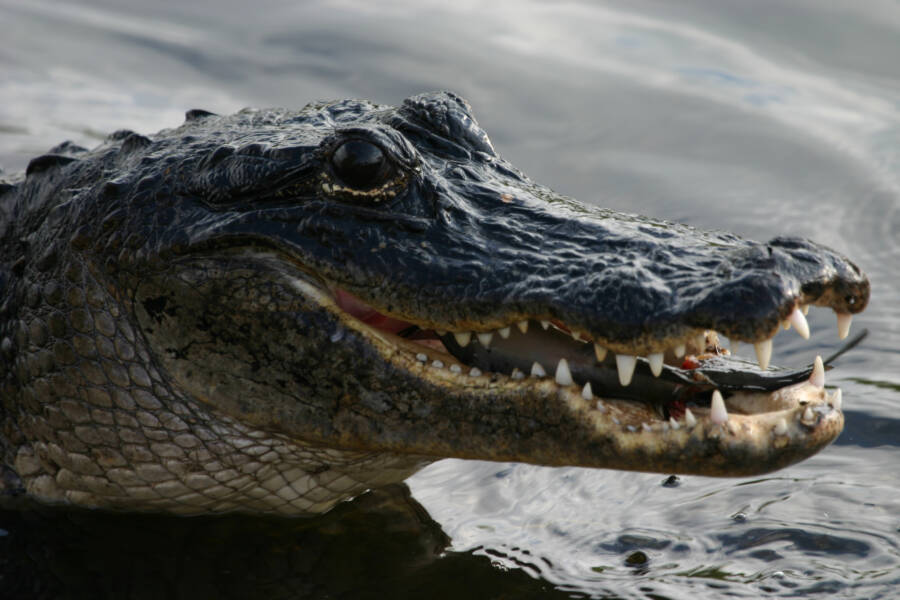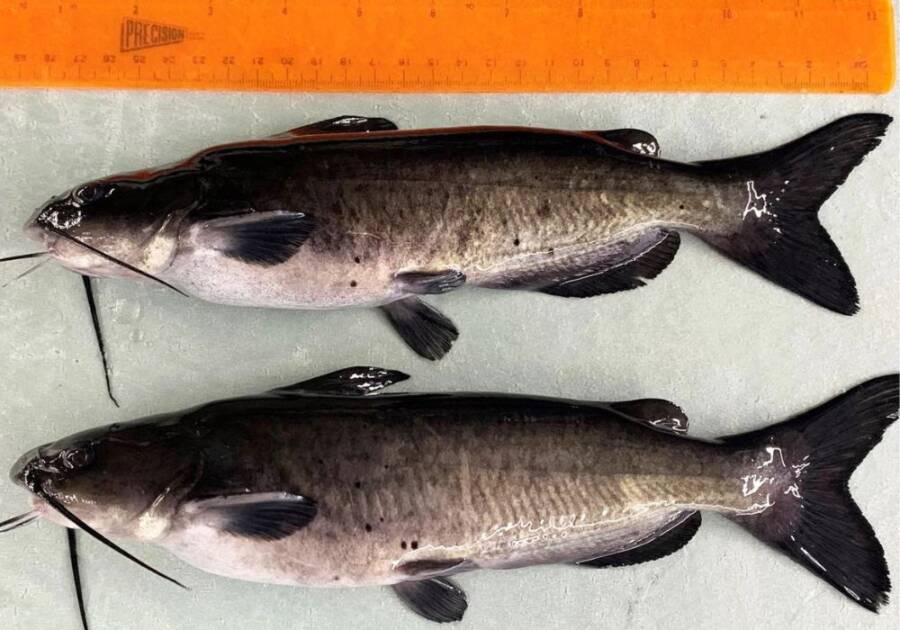Scientists at Auburn University hope that one day these disease-resistant catfish can be sold for human consumption.

Sekernas/Getty ImagesAn American alligator eating a catfish.
Catfish is a popular food in the United States, and catfish farms are a key component in bringing the product to supermarkets and dinner tables across the country. Unfortunately, these farms also make it far more likely for disease to travel from fish to fish. But a team of scientists at Auburn University may have found the solution: genetically modifying catfish to better resist disease — by using alligator DNA.
As Insider reported, alligators have a gene in their intestines known as cathelicidin, an antimicrobial peptide that helps fight disease.
After using CRISPR, a gene-editing tool that precisely slices DNA and allows the natural repair process to take over, to insert this alligator gene into the DNA of the fish, researchers found that their test catfish had far superior disease resistance when compared with wild catfish. According to the researchers, the fish’s survival rates were “two and five-fold higher.”
The full extent of their research was published in a paper in January, though it has not yet been peer-reviewed.
One key note from the research was the uncertainty of using CRISPR technology on fish. It has primarily been studied on mammals.
The insertion of the cathelicidin gene also reduced the catfish’s ability to reproduce, which was intentional. The scientists actually inserted the gene into part of the catfish’s genome that contained sequences important for reproduction. The reason, they said, was that doing so would prevent genetic contamination should the hybrid fish try to reproduce with wild catfish.

Twitter/NGSS PhenomenaOne of the genetically-modified catfish (above) next to a catfish that hasn’t had its genes edited (below).
In essence, researcher Rex Dunham told the MIT Technology Review, they were “killing two birds with one stone.”
Assuming these transgenic fish are approved for sale and consumption, Dunham noted, the potential impact on waste reduction could also be a significant boon. As it turns out, Americans eat a lot of catfish. In 2021, U.S. farms produced 307 million pounds of the fish.
“On a per-round basis,” Dunham said, “anywhere from 60 to 70 percent of U.S. aquaculture is… catfish production.” The problem is that from hatching to harvesting, around 40 percent of catfish worldwide die from various diseases.
The goal then would be to significantly decrease the amount of waste by strengthening catfish’s resistance to disease. The other problem, of course, is whether anyone would eat these genetically-modified catfish.
At the time of writing, only one other type of genetically engineered fish has been approved for sale in the U.S. market: AquAdvantage salmon, which became available for purchase in 2021 – a full 26 years after the company behind it, AquaBounty, applied for FDA approval. This salmon carries an extra gene, taken from the genome of another salmon type, which makes it grow much larger than it normally would.
Dunham and his colleagues believe that people would in fact eat the genetically engineered catfish. After all, it’s not unheard of to eat alligator meat, and the protein made by the alligator gene in the catfish would lose any biological activity once cooked. In other words, they don’t feel there would be any consequences for a person eating the fish.
“I would eat it in a heartbeat,” Dunham said.
After learning about the catfish-alligator hybrids that scientists are working to create, read about how gene technology is being used to produce hypoallergenic cats. Or, read about the Swedish company that created a vegan burger that tastes like human meat.





